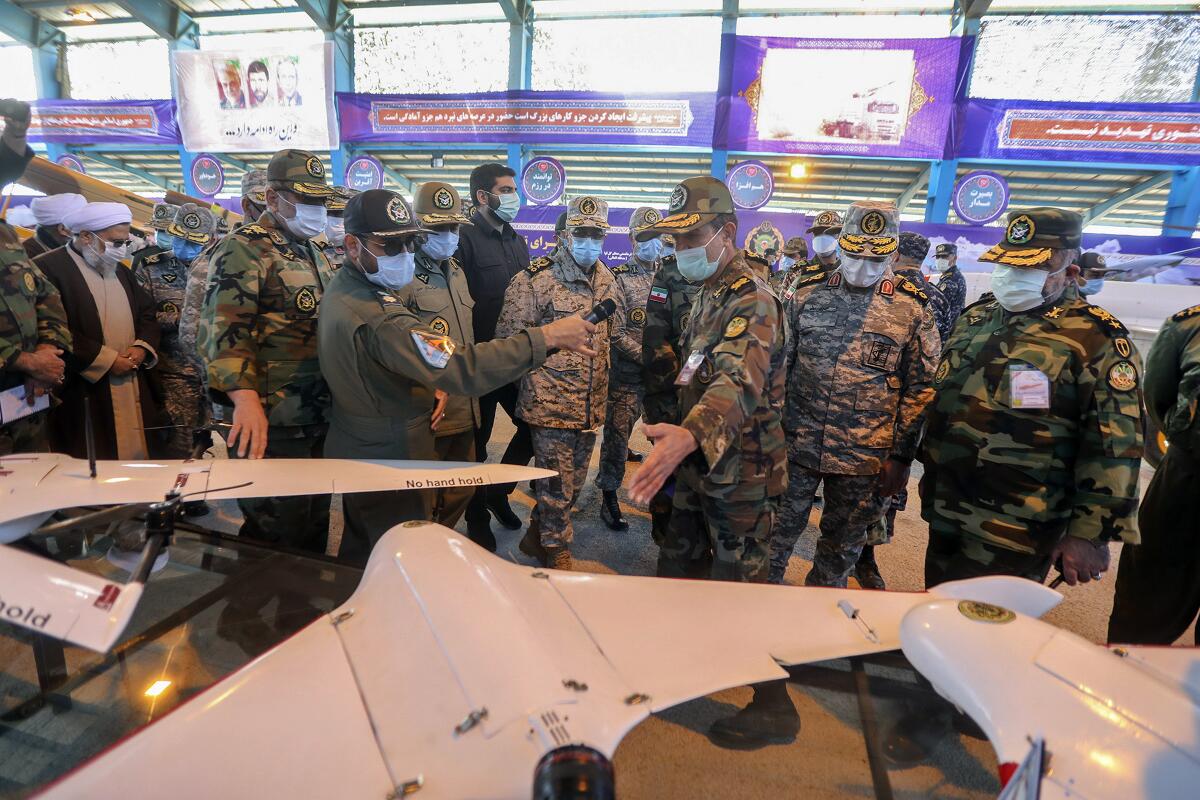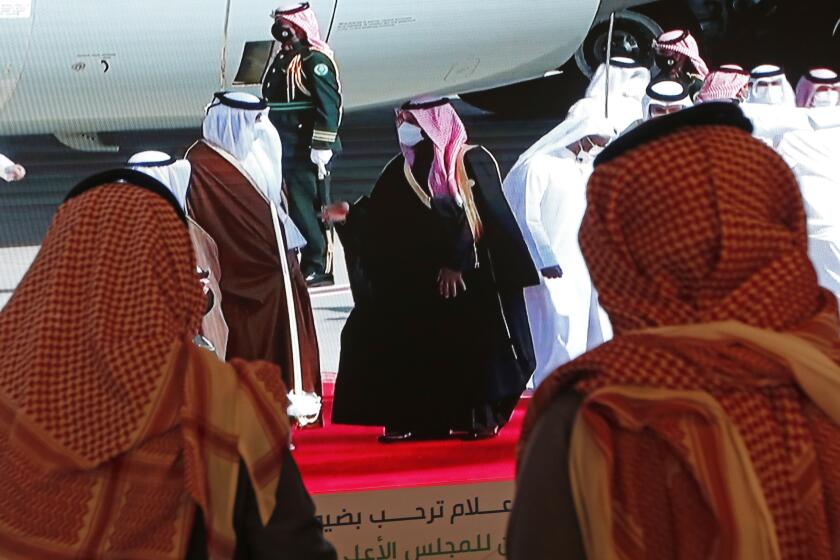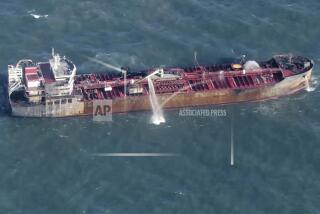South Korean oil tanker was boarded by armed Iranian Revolutionary Guard forces

- Share via
SEOUL — Armed Iranian Revolutionary Guard troops stormed a South Korean tanker and forced it to change course and travel to Iran, the vessel’s owner said Tuesday — the latest maritime seizure by Tehran amid heightened tensions with the West over its nuclear program.
The description of Monday’s military raid on the MT Hankuk Chemi is at odds with Iranian explanations that authorities stopped the vessel for polluting the waters of the Persian Gulf and the Strait of Hormuz. Instead, it appears that the Tehran was seeking to increase its leverage over Seoul ahead of negotiations over billions of dollars in Iranian assets frozen in South Korean banks amid a U.S. pressure campaign targeting Iran.
An Iranian government spokesman, asked Tuesday about the seizure, offered Tehran’s bluntest acknowledgment yet of a link to the frozen assets.
“If anybody is to be called a hostage-taker, it is the South Korean government that has taken our more than $7-billion hostage under a futile pretext,” spokesman Ali Rabiei said.
Iran on Monday also began enriching uranium up to 20%, a small technical step away from weapons-grade levels of 90%, at its underground facility in Fordo. That move appeared aimed at pressuring the U.S. in the final days of the Trump administration, which unilaterally withdrew from Tehran’s nuclear deal with world powers.
Comments Tuesday by the head of Iran’s civilian nuclear program suggested that Tehran’s current production of 20%-enriched uranium would not reach levels needed for a nuclear weapon for more than two years, potentially giving time for negotiations under President-elect Joe Biden.
Biden considers an Iran nuclear deal 2.0 as a way to calm opposition as he returns the U.S. to the international pact.
An executive at DM Shipping of Busan, South Korea, who spoke on condition of anonymity because he was not authorized to talk to journalists, offered details of the Hankuk Chemi’s seizure. The vessel had been traveling from Jubail, Saudi Arabia, to Fujairah in the United Arab Emirates when Iranian forces reached the ship and said they would board it.
Initially, Iranian forces said they wanted to run an unspecified check on the vessel, the DM Shipping executive said. As the captain spoke to company security back in South Korea, armed Iranian troops stormed the tanker as an Iranian helicopter flew overhead, the executive said. The troops demanded that the captain sail the tanker into Iranian waters over an unspecified investigation and refused to explain themselves, the executive added.
The company has since been unable to reach the captain, the official said. Security cameras installed on the ship that initially relayed footage of the scene on the deck have been turned off, the executive said.
After the company lost contact with the captain, the company received an anti-piracy security alert, suggesting that the captain had activated an onboard warning system, the executive said. It remains unclear whether the ship tried to call for outside assistance.
The executive denied that the vessel had been polluting the waters.
Saudi Arabia is ending a years-long boycott of Qatar. Full reconciliation among Gulf leaders is far from guaranteed, with the deepest rift between Qatar and the UAE.
In past months Iran has sought to escalate pressure on South Korea to unlock some $7 billion in frozen assets from oil sales earned before the Trump administration tightened sanctions on the country’s oil exports.
The head of Iran’s central bank recently announced that Tehran was seeking to use funds tied up in a South Korean bank to purchase COVID-19 vaccines through COVAX, an international program designed to distribute inoculations to participating countries.
South Korea’s Foreign Ministry said Tuesday that it plans to dispatch a delegation of officials to Iran for talks on securing the early release of the ship and its crew members. The crew includes sailors from Indonesia, Myanmar, South Korea and Vietnam, according to the Iranian Revolutionary Guard.
South Korea’s Defense Ministry said it was sending its anti-piracy unit near to the Strait of Hormuz — a 4,400-ton-class destroyer with about 300 troops.
Breaking News
Get breaking news, investigations, analysis and more signature journalism from the Los Angeles Times in your inbox.
You may occasionally receive promotional content from the Los Angeles Times.
South Korea’s presidential office said Tuesday that it viewed Iran’s ship seizure “very gravely.”
Foreign Ministry spokesman Choi Young-sam said Iranian officials have assured South Korea that the ship’s crew members were all safe. He said an Iran-based South Korean diplomat has been dispatched to the location of the detained ship.
The U.S. State Department joined South Korea in calling for the tanker’s immediate release, accusing Iran of threatening “navigational rights and freedoms” in the Persian Gulf in order to “extort the international community into relieving the pressure of sanctions.”
The U.S. Navy’s Mideast-based 5th Fleet routinely patrols the area along with a U.S.-led coalition monitoring the Strait of Hormuz, the narrow mouth of the Persian Gulf through which 20% of the world’s oil passes. A separate European-led effort also operates there as well.
Last year, Iran similarly seized a British-flagged oil tanker and held it for months after one of its own tankers was held off the British territory of Gibraltar.
More to Read
Sign up for Essential California
The most important California stories and recommendations in your inbox every morning.
You may occasionally receive promotional content from the Los Angeles Times.














